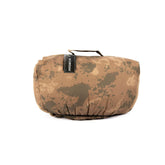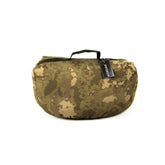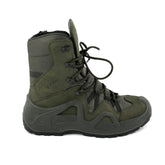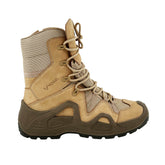10 Suggestions: Tips For The Perfect Winter Camp
Isn't camping on the pure white blanket of nature, warming up by the crackling campfire, and resting in the tranquil solitude of a snow-covered forest incredibly appealing? Thanks to this article where we provide recommendations for winter camping, you can experience this adventure to the fullest.
While the idea of winter camping might sound fun, many people hesitate to experience it for various reasons. And they have valid reasons for that. Without caution, you might encounter challenging roads, collapsing tents, hypothermia, or frostbite.
But don't worry. With the small tips in this article where we provide recommendations for winter camping, you can prepare for this unique experience. Get one step closer to the perfect winter camping experience with the 10 tips we've prepared especially for you!

10 Tips for Winter Camping:
Get a Four-Season Tent
Winter camping is a crucial season for tents. Using a four-season tent during winter camping will enhance your experience. Four-season tents, usually designed for winter campers, are made with materials that keep the interior warm, are resilient against harsh winds, have longer-lasting materials, and have special shapes to prevent snow buildup.
Bring Spare Clothes
Bring more than what you think you'll need. Seriously, there's no harm in taking an extra sweater or a pair of socks with you. Especially if you have a car and plenty of space. Having extra clothing can make you happy when temperatures drop unexpectedly or when your daily clothes get wet.
Be Prepared for Winter Camping
Do your homework before hitting the road. Learn about all road conditions, weather forecasts, and, if necessary, avalanche conditions, and plan accordingly. Pay particular attention to the details in the winter camping recommendations article.
Get a Winter Sleeping Bag
Find the right sleeping bag for you. One of the most important factors that determine whether a camping trip will be successful or not is a quality sleeping bag. Make sure your sleeping bag is rated for the coldest temperature you expect to encounter during camping.
Choose a Safe Camping Area
Find the right camping spot. If you're going to set up your tent outside of designated camping areas, ask yourself: Can I be protected from the wind? Am I exposed to risks like avalanches, falling branches, or trees? Can I find my campsite if it snows while I'm away? You can determine your camping area based on these questions.

Pay Attention to Your Camping Gear
One of the most important recommendations for winter camping is to pay attention to your equipment. Make sure your clothes and sleeping bag stay dry, especially.
Get Lithium Batteries
The water-based solution in alkaline batteries causes them to lose functionality in freezing temperatures. Therefore, it's best to switch to lithium batteries for camping in cold weather. Lithium is cold-resistant and remains strong in almost any condition.
Be Careful with Snowmelt
Among the recommendations for winter camping, you might sometimes see suggestions that you can drink snowmelt, but this is a wrong suggestion. Be careful with using snowmelt. Remember that melted snow is pure water (H2O). Snowmelt doesn't contain the minerals present in the water you drink daily. Therefore, the more snowmelt you drink, the more dehydrated you may feel. This situation can lead to serious health problems within the first 24 hours.

Dress Warmly
Dress appropriately and warmly. Whether you're warming up by the campfire or sweating on a mountain peak, dress according to the weather. Opt for layered clothing.
The first layer should be thermal underwear, the second layer should be a warm fleece or similar garment, and the third layer should be a waterproof but breathable outer shell that protects you from rain but doesn't let water through. When it comes to clothing, we especially recommend fleece jackets and softshell coats.
Ventilate the Tent
Open ventilation windows after waking up. The moisture created by your body and breath needs to somehow exit the tent. Without proper ventilation, the interior of the tent can become moist and start to condense into droplets.









Leave a comment
Please note, comments need to be approved before they are published.